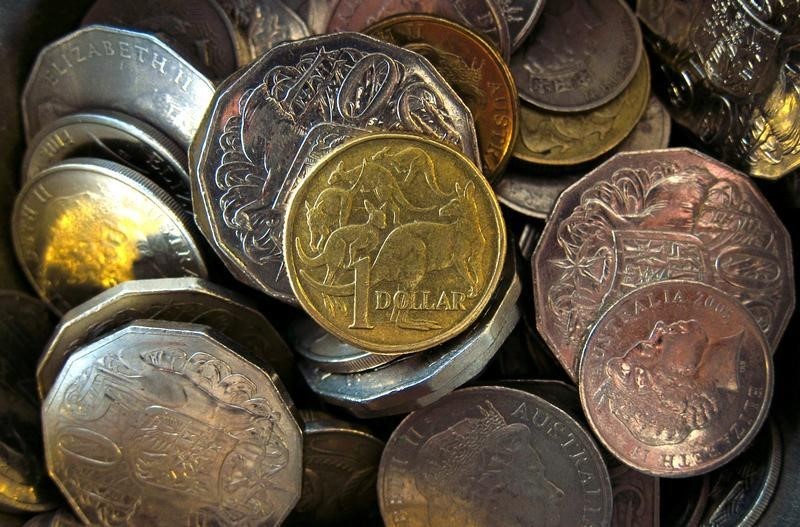By Wayne Cole and Charlotte Greenfield
SYDNEY/WELLINGTON, Sept 6 (Reuters) - The Australian dollar backed away from stiff chart resistance around 80 U.S. cents on Wednesday after a report on domestic economic growth was not as exuberant as bulls had wagered on, while its New Zealand counterpart paused after overnight gains.
The Australian dollar AUD=D4 inched down to $0.7980, after touching a six-week peak of $0.8028 late on Tuesday.
It took a modest knock as data showed the economy expanded by 0.8 percent in the second quarter when speculators had hoped for something even stronger. slightly underwhelmed bullish market expectations," said Peter Dragicevich, analyst, Nomura.
"In our view, the move in AUD should not be overly pronounced," he added. "The domestic outlook is improving, particularly in the labour market, and Australian-centric commodity prices have risen relatively sharply in recent months."
Prices for iron ore, Australia's single biggest export earner, have been supported by Chinese demand and copper hit its highest in three years this week. MET/L
Local bonds were encouraged by lack of any inflationary pressure in the GDP report, as well as safe-haven demand amid the lingering tensions on the Korean peninsula.
The head of the Reserve Bank of Australia (RBA) on Tuesday made it clear there were no plans to raise interest rates anytime soon, saying policy needed to stay stimulative. futures 0#YIB: imply virtually no prospect of a move in the 1.5 percent cash rate this year and around a 50-50 chance of a hike by June 2018.
Yields on Australian 10-year bonds slipped to a two-week low at 2.60 percent AU10YT=RR , having hit as high as 2.75 percent a week ago.
The three-year bond futures contract YTTc1 added 5 ticks to 98.030, while the 10-year contract YTCc1 rose 8 ticks to 97.4100.
The New Zealand dollar NZD=D4 had steadied at $0.7225, after rallying 1 percent overnight to $0.7263 and snapping a month-long sell-off.
"The NZD outperformed overnight as pent-up demand emerged. With the USD on the back foot and Asia-pacific region performing solidly from an economic point of view, it could consolidate further," said Con Williams, economist, ANZ.
Even a disappointing auction showing weakening prices for whole milk powder, a key export, did not hold the Kiwi back.
The currency had fallen 4.5 percent in August, partly on concerns over an domestic political uncertainty in the lead up to a hotly contested Sept. 23 election. Zealand government bonds 0#NZTSY= gained, sending yields 6.5 basis points lower at the long end of the curve. (Editing by Sherry Jacob-Phillips)
